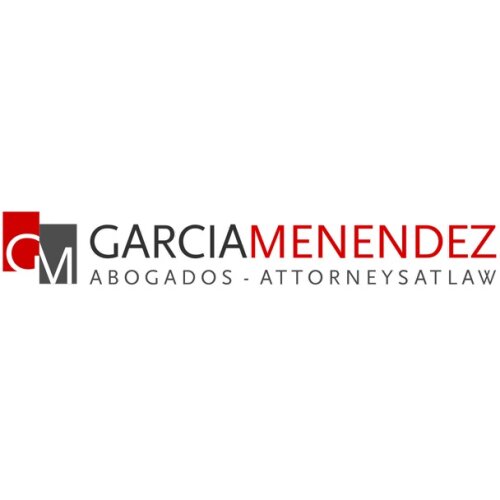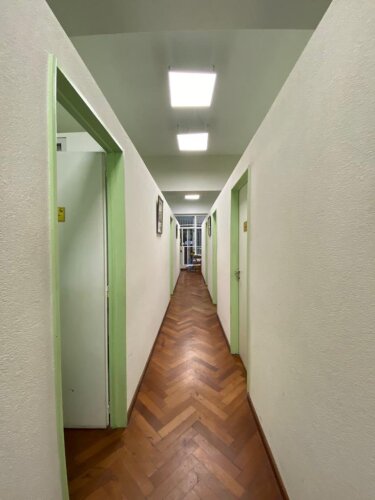Best Probate Lawyers in Buenos Aires
Share your needs with us, get contacted by law firms.
Free. Takes 2 min.
List of the best lawyers in Buenos Aires, Argentina
About Probate Law in Buenos Aires, Argentina
Probate law in Buenos Aires, Argentina, involves the legal process of administering the estate of a deceased person. This includes validating wills, managing the deceased's assets, paying debts and taxes owed by the estate, and distributing the remaining assets to heirs or beneficiaries. Buenos Aires follows the Civil Law system, and its probate process is governed by national and local laws that aim to ensure a fair and transparent transfer of assets.
Why You May Need a Lawyer
There are various situations where someone may require legal help in the field of probate. These include:
- Handling complex estates with numerous assets and beneficiaries.
- Dealing with contested wills where the validity is challenged by potential heirs.
- Navigating the probate process if there are international elements, such as assets located outside Argentina.
- Understanding tax implications and ensuring compliance with local tax laws.
- Resolving disputes among heirs or beneficiaries.
- Administering an estate where the deceased passed away intestate (without a will).
Local Laws Overview
Some key aspects of local laws relevant to probate in Buenos Aires include:
- Argentine Civil Code governs inheritance and succession laws, which operate under the principle of forced heirship.
- The probate process can either be judicial (formal) or extrajudicial (informal), depending on the complexity of the estate.
- Notarized wills are common and highly recommended to facilitate a smoother probate process.
- Heirs have a legal obligation to declare inheritance taxes and settle any debts owed by the estate.
- Certain family members are entitled to a portion of the estate by law, regardless of the stipulations of the will.
Frequently Asked Questions
What is the first step to initiate the probate process in Buenos Aires?
The first step is to file a petition at the appropriate local court where the deceased was last domiciled. This includes submitting the death certificate and the will, if available.
How long does the probate process usually take in Buenos Aires?
The duration can vary depending on the complexity of the estate, but it generally takes several months to a year to complete.
Can a will be contested in Buenos Aires?
Yes, a will can be contested on various grounds such as lack of capacity, undue influence, or failure to meet formal requirements.
What happens if there is no will?
If the deceased did not leave a valid will, the estate is distributed according to the intestacy laws under the Argentine Civil Code, which prioritizes certain heirs.
Are there any taxes on inheritance in Buenos Aires?
Yes, there are inheritance taxes imposed on the estate. Heirs must report and pay these taxes, which vary depending on the value of the inheritance.
Can foreigners inherit property in Buenos Aires?
Yes, foreigners can inherit property, but they may face additional legal and tax considerations, particularly concerning property outside Argentina.
What is "forced heirship"?
Forced heirship is a principle where certain heirs are entitled by law to a fixed portion of the estate, regardless of the deceased's will.
Is it necessary to hire a lawyer to handle probate?
While it is not mandatory, it is advisable to hire a lawyer to navigate the complex legal processes, especially in cases involving large or contested estates.
What role does a notary public play in the probate process?
A notary public can assist in authenticating documents, verifying wills, and facilitating the transfer of assets in an extrajudicial probate process.
How can debts of the deceased affect the distribution of the estate?
Debts must be settled before distributing the estate to heirs. Depending on the estate’s value and liabilities, heirs may receive less than anticipated.
Additional Resources
For further assistance, consider reaching out to these resources:
- The Argentine Ministry of Justice and Human Rights: Offers guidance on legal processes, including probate.
- Local Bar Associations: Can help find specialized probate lawyers in Buenos Aires.
- The Buenos Aires Civil Courts: Provides information on judicial processes, including initiating probate.
Next Steps
For those needing legal assistance in probate, the following steps are recommended:
- Gather all relevant documents, including the death certificate, will, and any known asset and debt records.
- Consult with a qualified probate lawyer to understand your legal rights and obligations.
- Review the estate’s financial situation to assess any debts, taxes, and other obligations.
- Begin the probate process by filing a petition with the appropriate local court if necessary.
- Maintain open communication with any co-heirs or stakeholders to ensure a smooth process.
Seeking early advice can prevent complications and ensure a seamless administration of the deceased's estate.
Lawzana helps you find the best lawyers and law firms in Buenos Aires through a curated and pre-screened list of qualified legal professionals. Our platform offers rankings and detailed profiles of attorneys and law firms, allowing you to compare based on practice areas, including Probate, experience, and client feedback.
Each profile includes a description of the firm's areas of practice, client reviews, team members and partners, year of establishment, spoken languages, office locations, contact information, social media presence, and any published articles or resources. Most firms on our platform speak English and are experienced in both local and international legal matters.
Get a quote from top-rated law firms in Buenos Aires, Argentina — quickly, securely, and without unnecessary hassle.
Disclaimer:
The information provided on this page is for general informational purposes only and does not constitute legal advice. While we strive to ensure the accuracy and relevance of the content, legal information may change over time, and interpretations of the law can vary. You should always consult with a qualified legal professional for advice specific to your situation.
We disclaim all liability for actions taken or not taken based on the content of this page. If you believe any information is incorrect or outdated, please contact us, and we will review and update it where appropriate.














